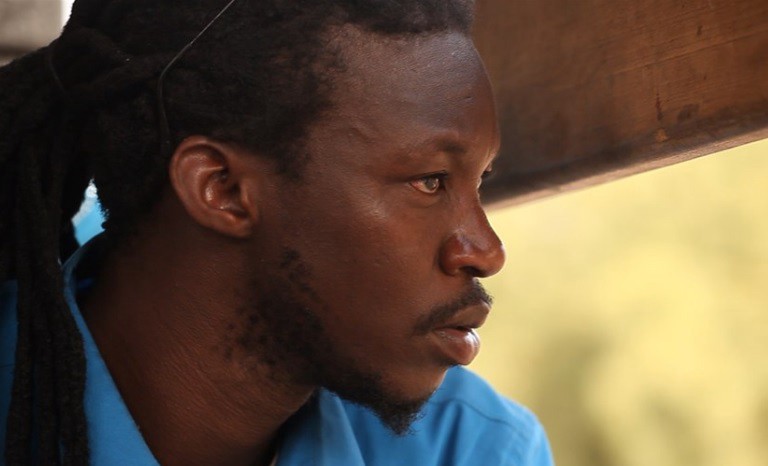Rama Thiaw is a writer, director, and producer at Boul Falle Images, a Senegalese film production company. Mauritanian and Senegalese, she grew up between Senegal and Europe. She has previously worked in collaboration with Zalea TV where she made a series of portraits of residents of Aubervilliers focused on the theme of precarious housing. (Press materials)
“The Revolution Won’t Be Televised” premiered at the 2016 Hot Docs Film Festival on April 29.
W&H: Describe the film for us in your own words.
RT: It’s a story of three friends, two of whom are musicians — Thiat, Kilifeu and their friend and manager Gadiaga. They find themselves at the head of a revolution that they never thought possible in Senegal. Beyond this human adventure, the film tries to understand daily life from their perspectives — those little actions that we usually do day by day as we forge the great deeds and revolutions.
W&H: What drew you to this story?
RT: I guess it was my friendship with Thiat and Kilifeu, and my desire to bring a change in the mainstream image of Francophone Africa, especially of my country Senegal, which is far away from the cliché of a poor country with smiley people and nice beaches.
W&H: What do you want people to think about when they are leaving the theater?
RT: If they’ve done it, we can do it too. Nothing is impossible.
W&H: What was the biggest challenge in making the film?
RT: The time and the money. It was my second feature and the first one I’ve produced. I produced it with my Senegalese company BFI, and it took me six years to make.
W&H: How did you get your film funded? Share some insights into how you got the film made.
RT: First I put my own money and four friends helped me to finance the first shooting —quite an expensive one.
After this I edited a short teaser and started a crowdfounding campaign, but it did not succeed. Meanwhile, some producers heard about it, and then I found a French associate producer and a small French TV broadcaster. From that moment others international funds came. And I started to search in the Anglophone area, as in South Africa, with the Durban IFF. It’s there that I heard about Hot Docs Blue Ice Funds.
W&H: What’s the biggest misconception about you and your work?
RT: About this film, people always think that is a movie about the Civil Society Movement Y’en A Marre, which Thiat and Kilifeu had created with some other friends.
About me, people always think that I’m living in Paris — it seems that you can’t do something good as an African woman if you’re not living in a Western country.
W&H: What’s the best and worst advice you’ve received?
RT: The best: Try to do your film with all the freedom that you can have. Stay focused on your first vision.
The worst: Try to do your Film with all the freedom that you can have. Stay focused on your first vision.
W&H: What advice do you have for other female directors?
RT: Don’t ever think you’re a woman, but just a filmmaker.
W&H: Name your favorite woman-directed film and why.
RT: Actually, I don’t have a favorite woman-directed film or director. But I can name two films directed by woman that touched me.
The first one is “Une fenetre ouverte” by Khady Sylla, a Senegalese director. This film deals with her own mental illness and how she lives and creates with it. A very powerful, poetic testimony.
The second one is “Elena” by Petra Costa, a Brazilian director. How can we deal with memory and losing memories? How can we deal with someone who has built you and who has disappeared? In a very delicate, poetic, and non-linear narrative way, the director immerses us in this emotional story. A sad but strong film.







